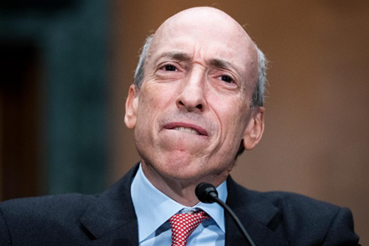For decades, U.S. stock markets have adhered to traditional business hours, with the New York Stock Exchange (NYSE) and Nasdaq operating from 9:30 AM to 4:00 PM Eastern Time. However, a growing movement is challenging these historical norms, pushing for extended and even 24-hour trading.
This shift is largely fueled by the rise of retail trading, sophisticated mobile apps, and the increasing globalization of financial markets. Robinhood, a leading brokerage platform, has been at the forefront of this trend, with its overnight trading volumes surging. Many retail investors, who first embraced trading during pandemic lockdowns, have since adapted their habits to non-traditional hours, often coinciding with active Asian markets.

The Institutional Perspective
While retail traders are driving demand, institutional players and market operators are grappling with fundamental questions. The NYSE has proposed extending its trading hours from 1:30 AM to 11:30 PM, while a new Bermuda-based exchange, 24X, aims to operate nearly 24 hours a day. Yet, the transition to round-the-clock trading is not as simple as flipping a switch.
- Defining Market Hours: A major concern is determining when a trading day officially begins and ends. The closing price of a stock is a critical benchmark for trillions of dollars in mutual funds, ETFs, and index-based strategies.
- Liquidity Concerns: Overnight trading volumes are a fraction of regular market activity. Large institutional traders fear that executing sizeable trades in thinly populated markets could lead to volatile price swings.
- Comparison with Forex: Unlike highly liquid asset classes such as forex, which operates 24/7, equities rely on complex networks of market makers, brokers, and clearinghouses, all of which would need to adapt.
Regulatory and Technological Challenges
Expanding trading hours also presents operational hurdles. Settlement and clearing processes occur after market close, ensuring that stocks and cash are correctly transferred between buyers and sellers. With continuous trading, firms would need to overhaul their systems to accommodate real-time settlements while maintaining regulatory compliance.
- The Securities and Exchange Commission (SEC) has granted approval to 24 Exchange, a Bermuda-based platform, to move forward with around-the-clock trading operations.
- Outgoing SEC chair Gary Gensler has expressed that a regulated, transparent overnight trading system could increase market accessibility.
- Currently, large investors rely on alternative trading systems (ATS) or "dark pools" to execute large block trades outside public exchanges.
- The SEC believes shifting such transactions to a fully regulated "lit exchange" could enhance transparency, attract global investors, and improve price discovery.
- However, critics argue that major U.S. stocks already trade on international exchanges such as London and Tokyo, limiting the potential impact of overnight trading.
Despite scepticism, 24 Exchange plans to implement expanded hours from 4 AM to 7 PM starting in 2025, with the long-term goal of operating nearly 24/5 trading.
Additionally, exchanges play a crucial role in price transparency. While ATS platforms like Blue Ocean currently facilitate overnight transactions in a "dark pool" environment, major exchanges are required to publish bid and ask prices in real time. A transition to 24-hour trading would necessitate maintaining this transparency while ensuring market participants access fair prices.

The Global Connection
One of the key drivers of extended trading hours is international demand.
- Asian investors, who have traditionally focused on regional markets, are increasingly drawn to U.S. tech giants like Nvidia, Microsoft, and Tesla.
- Platforms facilitating overnight trading are already forging partnerships with Asian brokers to accommodate this demand.
The Road Ahead
Despite growing interest, full-scale 24-hour trading is unlikely to happen overnight. Market participants must balance efficiency, risk management, and infrastructure readiness.
- While pre- and post-market sessions have expanded over the years, an around-the-clock trading environment introduces significant challenges.
- Institutional investors remain cautious, and regulatory hurdles must be addressed before full adoption.
Ultimately, while retail traders and some exchanges are eager for change, institutional scepticism and logistical complexities may slow the transition. The coming years will reveal whether 24-hour trading becomes an industry norm or remains a niche segment catering to retail investors and international markets.